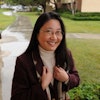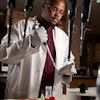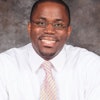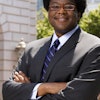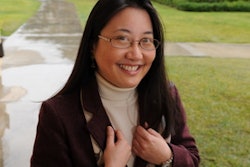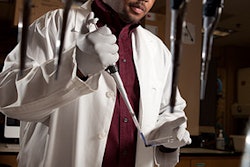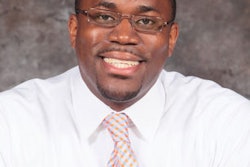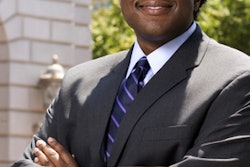Frances Williams loved math and science, ever since elementary school.
“They were my favorite subjects,” Williams recalls. “I was always involved in science projects, science fairs and summer math and science programs.”
Williams saw a way to put her love of math and science to practical use after a cousin who was an engineer served as the spark that fired up Williams to pursue a similar career.
Now, Williams is serving as the spark to inspire other young people to follow in her footsteps.
She meets once a month with students at Ingleside Elementary School in Norfolk, Va., where she leads third- through fifth-graders in hands-on projects in the hopes of igniting their interest in science and math careers. Williams mentors high school students through the Project S.E.E. (Science and Everyday Experiences) initiative, a partnership with her local Delta Sigma Theta chapter and the American Association for the Advancement of Science.
On the college level, Williams consistently gets high praise from her students, whose glowing evaluations have led to Williams being recognized as Educator of the Year in 2006 by the NSU student chapter of the Institute of Electrical and Electronics Engineers and receiving the engineering department’s teaching award in 2009.
“Her courses are eagerly sought after by students each semester,” says Dr. Sandra DeLoatch, interim provost and vice president for academic affairs at NSU. “Beginning with freshmen, she follows through with our undergraduates until they graduate. She spends a significant amount of time with the students, and there is always a line of students at her office awaiting an advisement session.” Williams cultivates an open-door policy with her students and tries to learn their names “even if there are 60 students in the classroom,” she says. She wants her students to “get it.”
Williams says of her teaching method, “There are no stupid questions. I think my students feel very free to ask questions, and they know if they are not getting it, they can come by my office and I will try to explain it until they get it. I try to teach in a way that all my students can learn. I want to make sure I see the light bulbs going off in everyone’s head, not just a few of them.”
Williams also has earned the respect of her fellow faculty members, who recognized her outstanding achievements in teaching, scholarly activities and service by selecting her for the University of Excellence Award in 2011.
“This award is one of the highest honors the university can bestow on one of its faculty,” says DeLoatch. “It’s awarded to an exceptional individual.”
One of Williams’ more impressive accomplishments at the university is the establishment of the $6.5 million Center for Materials Research, which features a “clean-room,” which Williams describes as “a facility with a low particle count … needed because we are making devices on a macro- and nano-scale, with features that are smaller than a strand of hair.
“There is no other facility like it in the region, and it enhances the capability for cutting-edge research not only for our students and faculty but also for other researchers in the Hampton Roads area.”
Williams also has been granted a patent for her research in the area of micro-machined acoustics sensors for monitoring electrochemical dispositions, an application that is important to monitoring processes in the semiconductor industry.
Despite her many professional achievements, it all comes back to the students for Williams.
“Statistics show that seeing a successful minority female role model helps our students,” she says. “As an engineer, I want to cultivate curiosity in STEM areas. That’s why I participate in outreach programs and science projects. This early exposure sparked my curiosity, and I want to show them that they can do it, too, and it can be fun.”
Title: Associate professor, Department of Engineering and Center for Materials Research, Norfolk State University
Education: Ph.D., electrical and computer engineering, Georgia Institute of Technology; M.S., electrical engineering, North Carolina Agricultural and Technical State University; B.S., electrical engineering, North Carolina Agricultural and Technical State University
Age: 39
Career Mentors: Gary May, dean of the College of Engineering, Georgia Institute of Technology and Ph.D. adviser; Sandra DeLoatch, provost, Norfolk State University; Patricia Mead, professor of engineering, Norfolk State University.
Advice for new or budding faculty: “Stay focused on the big picture—meaning, do not let hurdles or obstacles stop you from crossing the finish line. Keep striving for your goals.”

